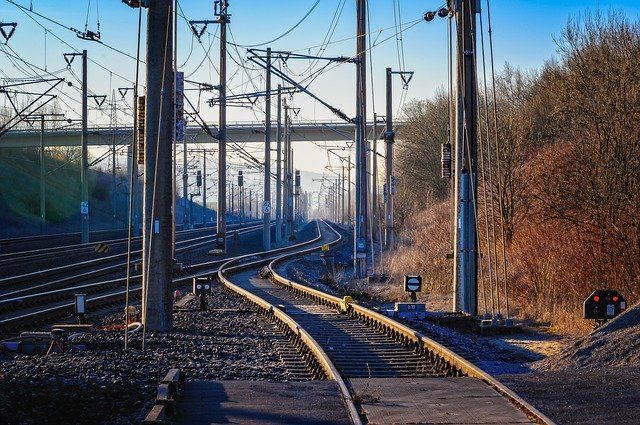The Responsible Investor
Infrastructure Bill – What’s in it and who’s paying for it?
On August 10th, the U.S. Senate passed an infrastructure bill that included over $1 trillion in infrastructure spending. Both parties have been trying to come to a resolution on an infrastructure package since the Trump administration. However, it was only until recently that both Republicans and Democrats could agree. This blog post aims to give an overview of the type of spending in this bill, and how it may advance clean and sustainable infrastructure.
While the $1 trillion infrastructure plan that passed the Senate seems relatively high, it is approximately 50% less than the original $2.3 trillion infrastructure plan that the Biden administration proposed in the spring. Of the roughly $1.2 trillion in infrastructure spending, about half of that spending ($550 billion) is new dollars above the projected federal spending on infrastructure projects.1
Below is a breakdown of the major components in the $550 billion of new spending:2
$110 billion to repair existing roads and bridges
- $73 billion to update and expand the power grid
- $66 billion in railroad repairs and maintenance
- $65 billion towards broadband infrastructure in rural and low-income communities
- $55 billion towards lead pipe replacement and clean drinking water
- $42 billion for U.S. seaports and airports
There are many other more minor provisions in this bill that direct funding to various projects.3 As it relates to sustainable infrastructure, there are several line items in the bill that allocate money towards advancing the implementation of clean energy. For example, $15 billion will go towards zero-emission public transportation and add to the network of electric vehicle chargers. The $73 billion going towards expanding the power grid will primarily be used to fund clean energy generation such as wind and solar.
Who Is Going to Pay For This Spending?
While there are billions of dollars of funds that the government can reallocate towards this spending bill, the U.S. government will not have enough to cover all of it. According to the Congressional Budget Office, it is estimated that this spending plan could increase the budget deficit by $256 billion over the next decade.4
One of the wealthiest people in the world and a vocal advocate for climate change, Bill Gates, has committed $1.5 billion of his wealth to fund clean energy projects and develop technologies to lower carbon emissions.5 This contribution may be just the beginning of public-private partnerships to help these projects get off the ground.
Sustainable infrastructure is one of the 16 Sustainable Development Goals created by the United Nations. Here is a link to a resource on our Allodium webpage that describes SDG #9 ― Sustainable Infrastructure, and why it is essential.
Infrastructure was one of the rare bipartisan issues that both Democrats and Republicans knew needed a resolution. It’s refreshing to know that the two sides can still find common ground even in this polarizing political climate.
References
1. Collins E. & Rubin G.T. (2021). What’s in the infrastructure bill for roads, bridges, broadband and cryptocurrency. The Wall Street Journal. Retrieved from https://www.wsj.com/articles/whats-in-the-bipartisan-infrastructure-agreement-and-what-hurdles-lie-ahead-11627515002?mod=series_bideninfrastructure
2. Ibid.
3. Long, H. (2021). What’s in the $1.2 trilllion senate infrastructure package. The Washington Post. Retrieved from https://www.washingtonpost.com/business/2021/08/10/senate-infrastructure-bill-what-is-in-it
4. Pramuk, J. (2021). https://www.cnbc.com/2021/08/10/senate-to-pass-bipartisan-infrastructure-bill.html. Retrieved from https://www.cnbc.com/2021/08/10/senate-to-pass-bipartisan-infrastructure-bill.html
5. Puko, T. (2021). Bill Gates pledges $1.5 billion for infrastructure bill’s new climate projects. The Wall Street Journal. Retrieved from https://www.wsj.com/articles/bill-gates-pledges-1-5-billion-for-infrastructure-bills-new-climate-projects-11628769601?mod=searchresults_pos7&page=1

Learn more about Derek Van Calligan
Hello! I’m Derek, a wealth advisor and director of investment research at Allodium Investment Consultants, located in Minneapolis, MN. I am passionate about helping individuals and families build holistic financial plans to help them reach their goals. When I’m not helping our clients make investment decisions, I enjoy spending time in the mountains in Colorado—skiing, fishing and hunting with my wife, Kelly, and my dog, Hank. I am also an active church member and volunteer at Big Brothers Big Sisters and Junior Achievement.
The information provided is for educational purposes only and is not intended to be, and should not be construed as, investment, legal or tax advice. Allodium makes no warranties with regard to the information or results obtained by its use and disclaim any liability arising out of your use of or reliance on the information. It should not be construed as an offer, solicitation or recommendation to make an investment. The information is subject to change and, although based upon information that Allodium considers reliable, is not guaranteed as to accuracy or completeness. Past performance is not a guarantee or a predictor of future results of either the indices or any particular investment.
